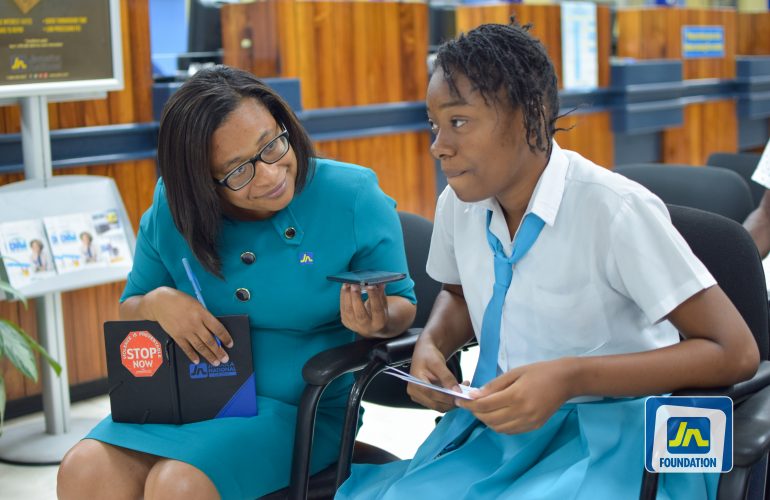NexxStepp Lifelong Educational Services Aims To Reverse Unemployment in St. Thomas
Often referred to as an underdeveloped parish, which is plagued with youth unemployment,residents in St Thomas can now anticipate a “positive wave of change” emerging during the next few years, if the social entrepreneur and native of the parish, Tishauna Mullings, founder of NexxStepp Lifelong Educational Services,achieve her goals.
Ms. Mullings recently launched her social enterprise, which focuses on empowering young people, and to equip them with practical skills for employment.
“We plan to start a wave that will change the current view of St. Thomas. Therefore, our aim is to solve issues, such as reducing the gap between employment opportunities and available skills set through a fusion of key academic support and life coaching,” she said of her organisation, which was officially launched at a mingle under the theme, “The Magic of Transformation,” at the Golden Shore Resort, Lyssons, in St. Thomas, on October 18, 2018
Referencing data from the Inter-American Development Bank (IDB), Ms. Mullings pointed out that only 40 per cent of the approximately 140 million young people, age 15 to 29 in the Latin American and the Caribbean,make up the workforce; representing one in five youths who do not work or study; and the youth unemployment rate is three times higher than the adult unemployment rate, she informed.
“In Jamaica, statistics indicate that, the youth unemployment rate is approximately 29.6 per cent. And, local employers indicate that some young people are ill-equipped to seek and keep a job,” she added.
Ms. Mullings said that NexxStepp, which was established six years ago, has already trained hundreds of young people; and created part and full time employment for many in St Thomas.
The organisation provides: academic excellence coaching, personal and organisational growth; motivational and inspirational communication; as well as, workshops and life coaching skills for groups and individual persons.
Opal Whyte, project manager of Social Enterprise Boost Initiative (SEBI)urged patrons attending the launch event to support NexxStepp Lifelong Educational Services, which is participating in the Accelerator Programme being conducted by SEBI.
SEBI is a project of the JN Foundation and USAID; and, through it’s Accelerator Programme, entrepreneurs are being taught toenhance their social businesses.
“NexxSteppcannot grow if you don’t do business with them,” Ms. Whyte pointed out. “Therefore, we urge you to support the business aspects of what they do; and, you could also sponsor a young person to participate in one of their educational services.”
She commended the social enterprise for being true to its roots, and focusing on the development of St. Thomas. “The social mission of NexxStepp is focused on St. Thomas; and, if this organisation transforms young people in this parish, then I believe that St. Thomas will grow from within; and that is why the JN Foundation and USAID believe in the work of NexxStepp,” she said.
Jerome Cowans, senior project director of Housing, for Opportunity, Production and Employment (HOPE) Programme,located in the Office of the Prime Minister, who was the guest speaker of the event, said that the services of NexxStepp were critical in the preparation of young people for the world of work.
“The first and most important goal of our HOPE Programme is personal development, which is absolutely essential,” Mr Cowans pointed out.
“We, therefore,identify mandatorycore skills for every young person who participates in our Programme; and personal development is one of them,” he informed.“That is one of the reasons why NexxStepp is critical, because the HOPE Programme alone cannot engage all of our young people,”noting that a recent survey indicated that there was approximately 130,000 unemployed youthsacross the country.
Dionne Rose| Communication Officer | JN Group Corporate Communications
The Jamaica National Group | Chief Office









